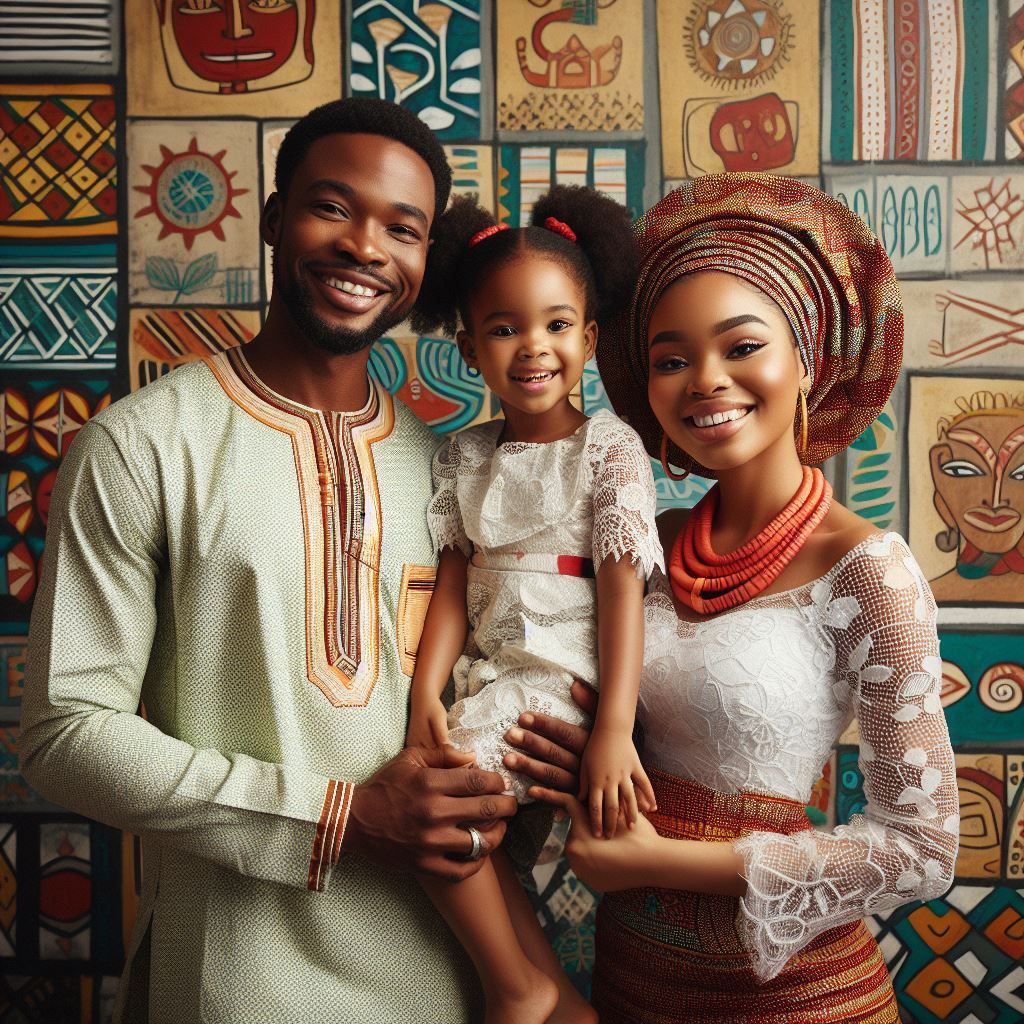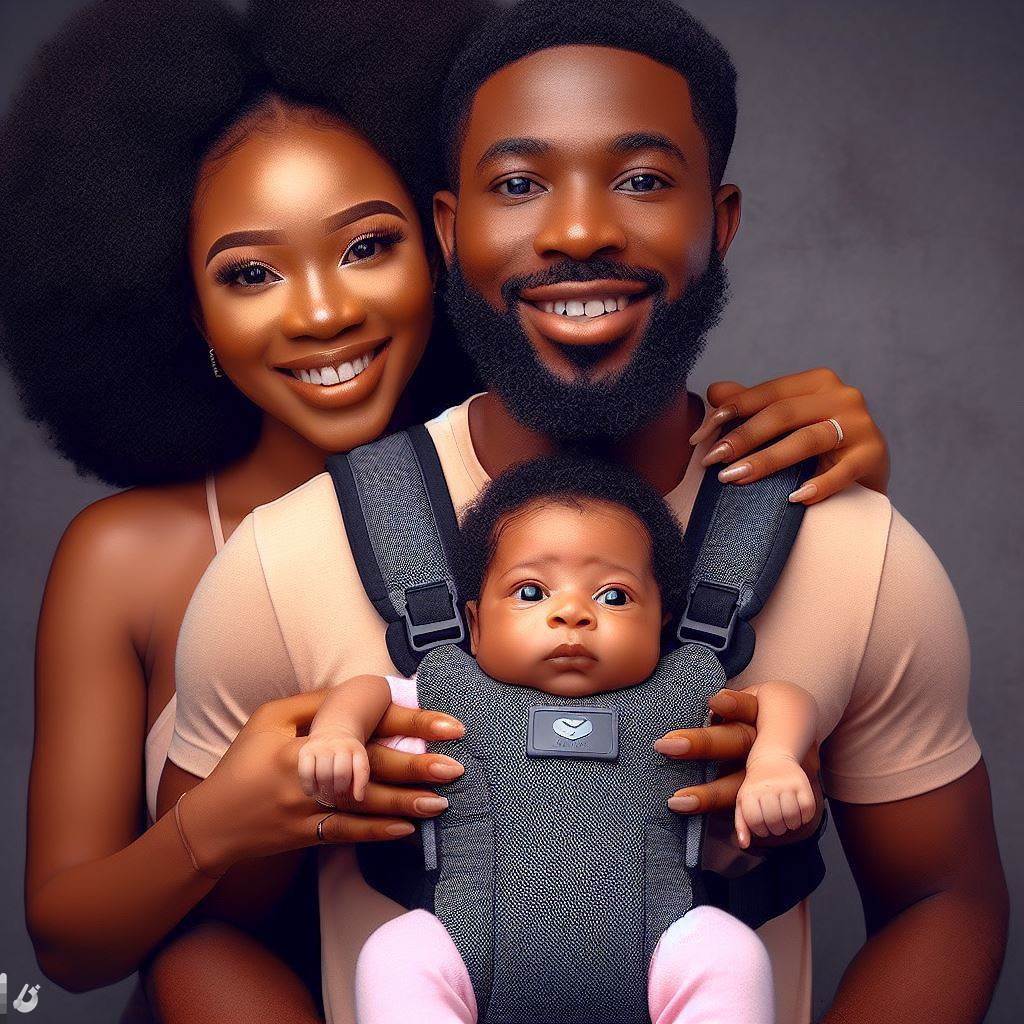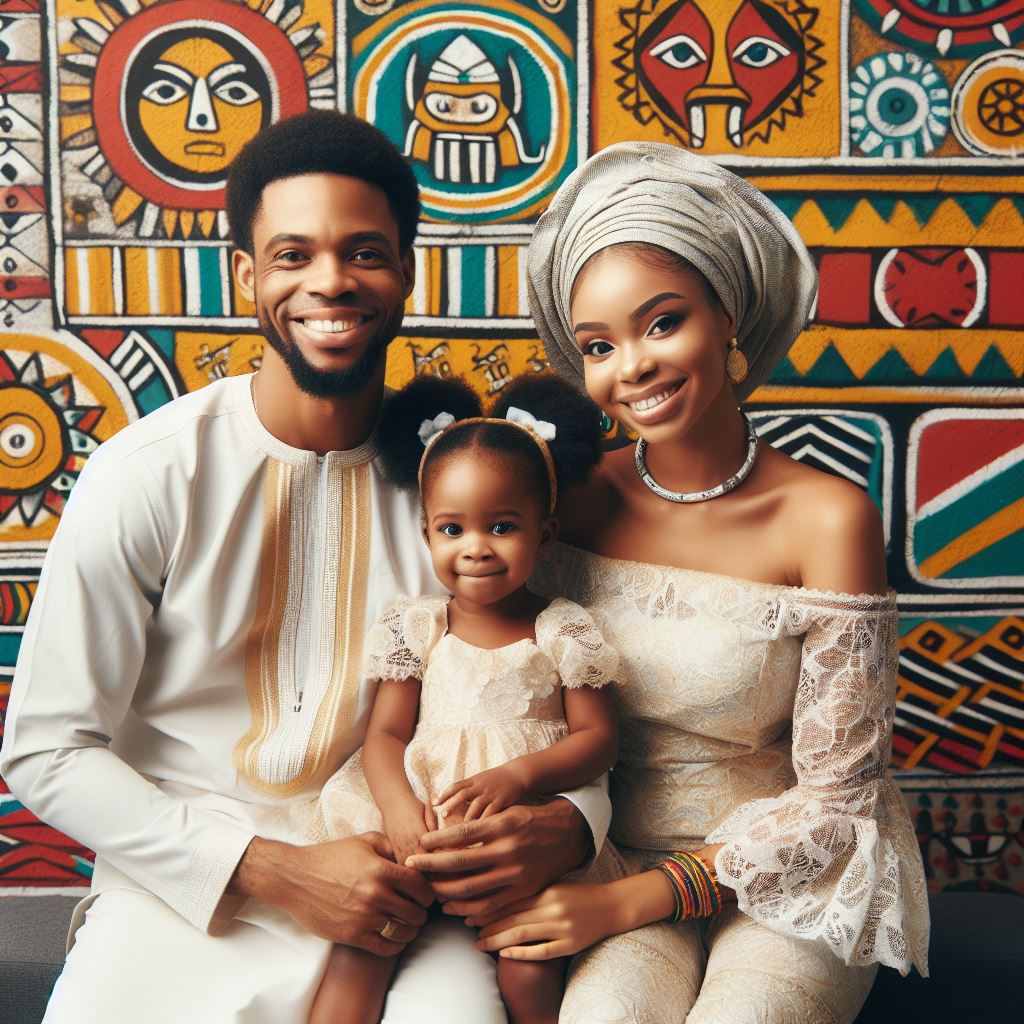Introduction
Choosing the Right Diaper for Your Nigerian Baby is of utmost importance.
Various factors need to be considered when selecting a suitable diaper for your baby.
A. Importance of choosing the right diaper for your Nigerian baby
Selecting the right diaper for your Nigerian baby is vital to ensure their comfort and well-being.
A well-fitting diaper helps to prevent leaks, rashes, and discomfort for your little one.
Choosing the wrong diaper can lead to skin irritation and an unhappy baby.
By considering the following factors, you can make an informed decision.
B. Brief overview of factors to consider when choosing a diaper
Firstly, consider the size of the diaper. It should fit snugly around your baby’s waist and legs.
Next, think about the absorbency of the diaper.
Ensure it can handle your baby’s urine output without leakage or causing discomfort.
The diaper’s material is also essential. Opt for diapers made of soft, hypoallergenic materials that are breathable.
Additionally, check the diaper’s elasticity. A diaper with elastic sides provides a better fit.
Consider the ease of use, such as fastening mechanisms, to make diaper changes hassle-free.
Lastly, factor in the cost and availability of the diaper, as maintaining a steady supply is vital.
By carefully considering these factors, you can choose the right diaper for your Nigerian baby.
Remember, a comfortable baby is a happy baby, and choosing the right diaper is crucial in achieving that.
Parenting Made Just for You
Get personalized Parenting Solutions tailored to your child’s needs. Transform your parenting journey with expert guidance in 1-3 days.
Get StartedRead: Nigerian Guide to Baby Strollers & Prams
Types of Diapers Available in Nigeria
1. Disposable diapers
Disposable diapers are a popular choice among Nigerian parents for their convenience and ease of use.
They are designed to be thrown away after use, reducing the need for washing and drying.
Disposable diapers come in various sizes to fit different age groups, from newborns to toddlers.
These diapers often have a soft and comfortable feel, designed to keep the baby dry and prevent rashes.
Many popular brands of disposable diapers are available in Nigeria, including Pampers, Huggies, and Molfix.
2. Cloth diapers
Cloth diapers are a more traditional and eco-friendly option for Nigerian parents.
They are made of fabric and can be washed and reused, reducing waste and saving money in the long run.
Cloth diapers come in different types, such as prefolds, flats, and pocket diapers.
Prefolds are rectangular-shaped diapers that require folding and fastening with pins or Snappis.
Flats are large, square-shaped diapers that can be folded to fit the baby’s size.
Pocket diapers have a waterproof outer layer and a pocket inside to stuff absorbent inserts.
3. Advantages of disposable diapers
- Convenience – Disposable diapers can be easily disposed of after use, saving time and effort.
- Availability – Popular brands of disposable diapers are widely available in Nigeria.
- Leak-proof – Disposable diapers often have excellent leak protection, keeping the baby dry.
- Travel-friendly – They are the preferred choice for outings and travels, as they can be easily disposed of.
4. Disadvantages of disposable diapers
- Environmental impact – Disposable diapers contribute to landfill waste and take a long time to decompose.
- Cost – Buying disposable diapers regularly can be expensive, especially for low-income families.
- Sensitivity – Some babies may have allergic reactions to the chemicals in disposable diapers.
- Rashes – Despite their absorption capabilities, disposable diapers can still cause diaper rash in some babies.
5. Advantages of cloth diapers
- Eco-friendly – Cloth diapers can be reused multiple times and help reduce waste.
- Cost-effective – Investing in cloth diapers can save money in the long run, especially for larger families.
- Soft and comfortable – Cloth diapers are often made of soft fabric, providing a comfortable fit for the baby.
- Less diaper rash – Cloth diapers allow for better airflow, reducing the likelihood of diaper rash.
6. Disadvantages of cloth diapers
- Time-consuming – Cloth diapers require washing, drying, and folding, taking up extra time and effort.
- Higher upfront cost – Purchasing a set of cloth diapers and accessories can be initially expensive.
- Extra laundry – Cloth diapers add to the daily laundry load, requiring constant washing and drying.
- Less absorbent – Compared to disposable diapers, cloth diapers may require more frequent changing.
In short, Nigerian parents have the option of choosing between disposable and cloth diapers for their babies.
While disposable diapers offer convenience and leak protection, cloth diapers are more cost-effective and eco-friendly.
Unveil the Perfect Name that Tells Your Family's Story
Let us help you find a name that embodies your family's values, traditions, and dreams. Our personalized consultation weaves cultural insights to create a name that's uniquely yours.
Get StartedIt ultimately depends on personal preferences, budget, and environmental concerns.
Read: Choosing Baby Gear: Safety Tips for Parents

Factors to Consider When Choosing a Diaper
Choosing the right diaper for your Nigerian baby is a crucial decision that impacts both your baby’s comfort and overall well-being.
In this section, we’ll explore key factors to consider when making this important choice.
A. Baby’s Comfort and Fit
One of the primary considerations is ensuring your baby’s comfort.
Opt for diapers with elastic bands and adjustable features to provide a snug fit.
Proper sizing is crucial, as a well-fitted diaper reduces the risk of leaks and allows for easy movement, supporting your baby’s active lifestyle.
B. Absorbency
The ability of a diaper to absorb liquid is vital. Look for diapers with high absorbency to keep your baby dry and comfortable.
Adequate absorbency not only prevents leaks but also minimizes the risk of skin irritation.
Choosing the right diaper means fewer disruptions to your baby’s playtime and uninterrupted sleep.
C. Breathability and Ventilation
To maintain your baby’s skin health, prioritize diapers with excellent breathability and ventilation.
This helps in keeping the baby’s skin dry, preventing rashes caused by prolonged exposure to moisture.
Adequate air circulation within the diaper is essential for maintaining optimal hygiene.
D. Chemicals and Allergens
Check for harmful substances and common allergens present in diapers.
Opt for products that are hypoallergenic and made from natural materials.
This reduces the risk of skin reactions and ensures that your baby’s delicate skin is treated with care.
In the Nigerian climate, where temperatures can be high, choosing a diaper that balances absorbency with breathability is key.
A diaper that keeps the baby dry while allowing air circulation minimizes discomfort and the likelihood of skin issues.
Making an informed decision when selecting diapers for your Nigerian baby involves weighing these factors carefully.
Prioritize your baby’s comfort, opt for diapers with superior absorbency and breathability, and steer clear of chemicals and allergens.
By doing so, you’ll be taking a significant step toward ensuring your baby’s happiness and well-being.
Read: Twin Education: Early Learning Steps
Additional Considerations
As parents, we want the best for our little ones, and choosing the right diaper involves more than just absorbency and fit.
In Nigeria, where diverse options are available, considering factors like cost and environmental impact is crucial.
A. Cost
One of the primary considerations for many parents is the cost of diapers.
In Nigeria, the price range for diapers can vary significantly.
It’s essential to compare prices across different brands and retailers to find the best value for your money.
Keep an eye out for promotions and discounts, as these can make a substantial difference in the long run.
Balancing quality and affordability is key.
While some premium brands may come with a higher price tag, they often offer enhanced features like better absorbency and a more comfortable fit.
However, several reputable brands in Nigeria provide a balance between quality and affordability, ensuring your baby gets the care they deserve without breaking the bank.
B. Comparing Prices of Diapers in Nigeria
Take the time to research and compare prices across various diaper brands available in Nigeria.
Consider bulk-buying options, subscription services, or loyalty programs that could offer additional savings.
C. Environmental Impact
In recent years, environmental consciousness has become a significant factor in decision-making for many parents.
The choice between disposable and cloth diapers plays a pivotal role in minimizing your baby’s ecological footprint.
D. Disposable Diapers vs. Cloth Diapers
Disposable diapers offer convenience but contribute to landfill waste.
Cloth diapers, on the other hand, are reusable and eco-friendly, but they require more effort in terms of washing and maintenance.
Consider your lifestyle and preferences when making this decision.
E. Eco-Friendly Options in Nigeria
Several eco-friendly diaper options are now available in Nigeria, combining the convenience of disposables with reduced environmental impact.
Look for brands that prioritize sustainability, using biodegradable materials or offering recycling programs.
In review, choosing the right diaper for your Nigerian baby involves weighing factors beyond mere functionality.
By comparing prices, balancing quality and affordability, and considering the environmental impact, you can make an informed decision that aligns with your values and meets your baby’s needs.
Read: Baby Carriers: A Nigerian Parent’s Guide
Conclusion
Firstly, determine the size and weight range of your baby, ensuring a snug fit to prevent leakages and discomfort.
Secondly, consider the type of diaper that suits your baby’s needs, whether it be cloth diapers for environmental-conscious parents or disposable diapers for convenience.
Lastly, don’t be afraid to try different diaper brands and types until you find the perfect fit for your baby.
Regularly checking and changing diapers is crucial for your baby’s health and comfort.
Always keep in mind that diaper changes should occur at least every 2-3 hours or whenever your baby soils their diaper.
Not only does routine diaper changes prevent rashes and infections, but it also ensures your baby remains content and happy throughout their day.
Remember, every baby is unique, and what works for one might not work for another. So, stay patient and persistent until you find the best diaper that suits your Nigerian baby’s needs.




